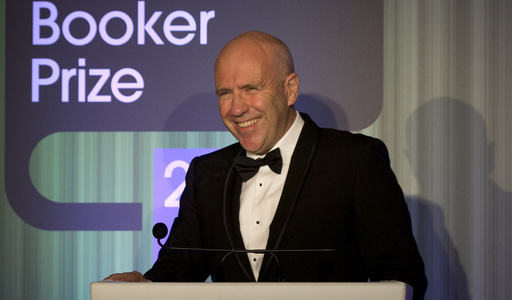
LONDON — In a remarkable achievement, Australian author Richard Flanagan secured a major literary accolade on Tuesday, claiming the prestigious Baillie Gifford Prize for his nonfiction work a decade after winning the Booker Prize for fiction. This triumph marks an extraordinary dual recognition in the realm of literature.
Flanagan was honored with the £50,000 ($63,000) award for his innovative memoir titled “Question 7.” This book intricately blends elements of autobiography, familial history, and insights into the development of atomic weaponry, showcasing Flanagan’s versatility as a writer. His previous acclaimed work, “The Narrow Road to the Deep North,” earned him the Booker Prize in 2014, drawing inspiration from his father’s harrowing experiences as a prisoner during World War II.
Toby Mundy, the director of the Baillie Gifford Prize, remarked on the uniqueness of Flanagan’s accomplishment, indicating that it is “completely unprecedented” for a single author to be celebrated with both leading fiction and nonfiction honors in the UK. Isabel Hilton, the chair of the judging panel, praised Flanagan’s latest book as a “meditative symphony,” noting how it intertwines the profound traumatic events of the 20th century with his deeply personal narrative. She emphasized that Flanagan’s background in fiction contributed to the book’s inventive nature and engaging storytelling, expressing that it indeed benefited from a novelist’s perspective.
Although Flanagan did not attend the award ceremony in London to collect his prize personally, it was noted that he was exploring the Tasmanian rainforest during that time. His memoir outperformed five other noteworthy finalists, which included Annie Jacobsen’s poignant “Nuclear War: A Scenario” and Viet Thanh Nguyen’s Pulitzer Prize-winning work, “A Man of Two Faces: A Memoir, A History, A Memorial.”
Established in 1999, the Baillie Gifford Prize celebrates outstanding English-language literature across various categories such as history, politics, science, and the arts. The award has played a pivotal role in bringing diverse nonfiction works to a broader readership. Last year, the accolade was awarded to John Vaillant for his gripping climate-change narrative, “Fire Weather: A True Story from a Hotter World.”
Despite the sponsorship from Baillie Gifford, an Edinburgh financial firm, facing scrutiny from environmental activists for its investments in fossil fuels, the organization has been a committed patron of the literary community. As a result of the protests, they have withdrawn sponsorship from some literary festivals, including the Edinburgh International Book Festival, which has sparked opposition from others in the arts sector who argue that this diminishes vital funding for the creative community.
Mundy expressed optimism regarding the continuation of Baillie Gifford’s sponsorship, which is set to last until 2026. He highlighted the company’s exemplary role in supporting the literary culture in the UK, underscoring the importance of such backing for the arts.
